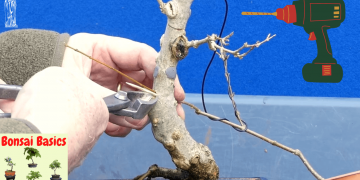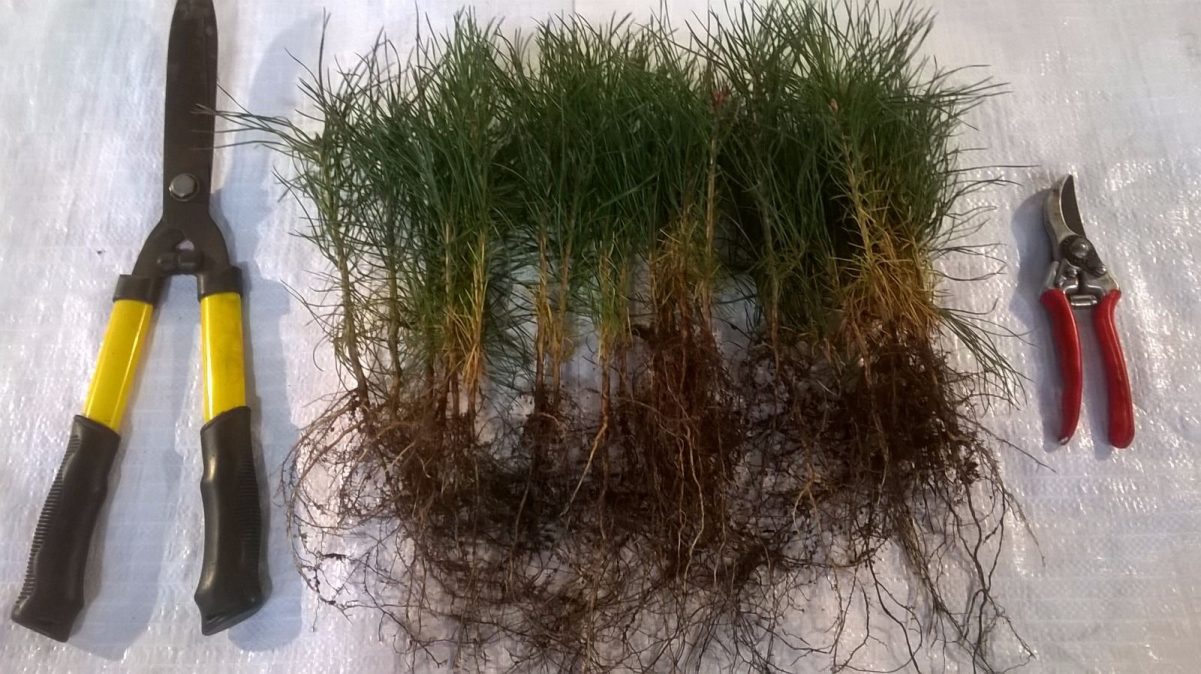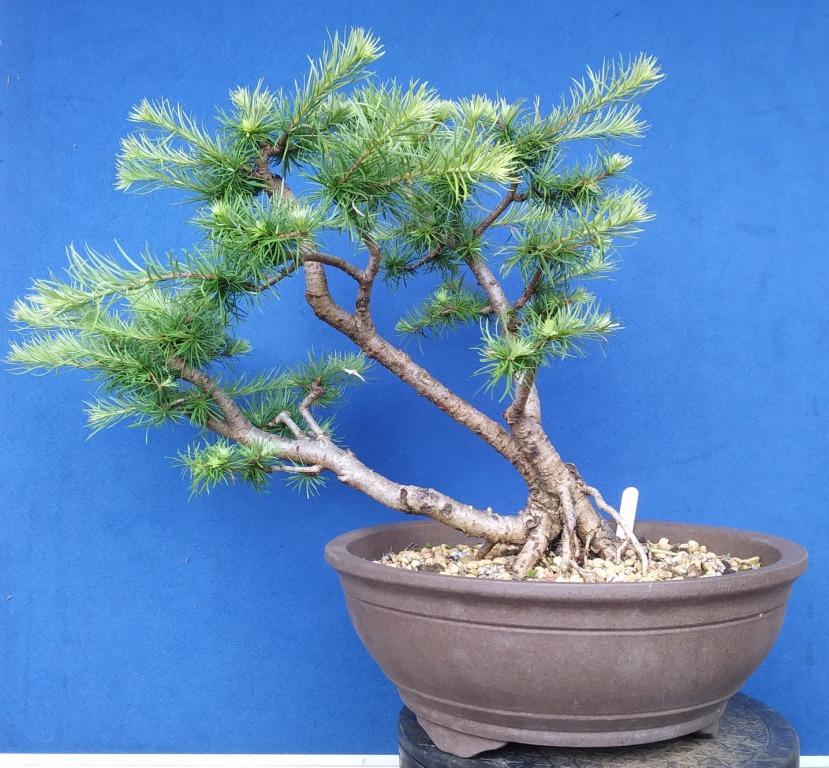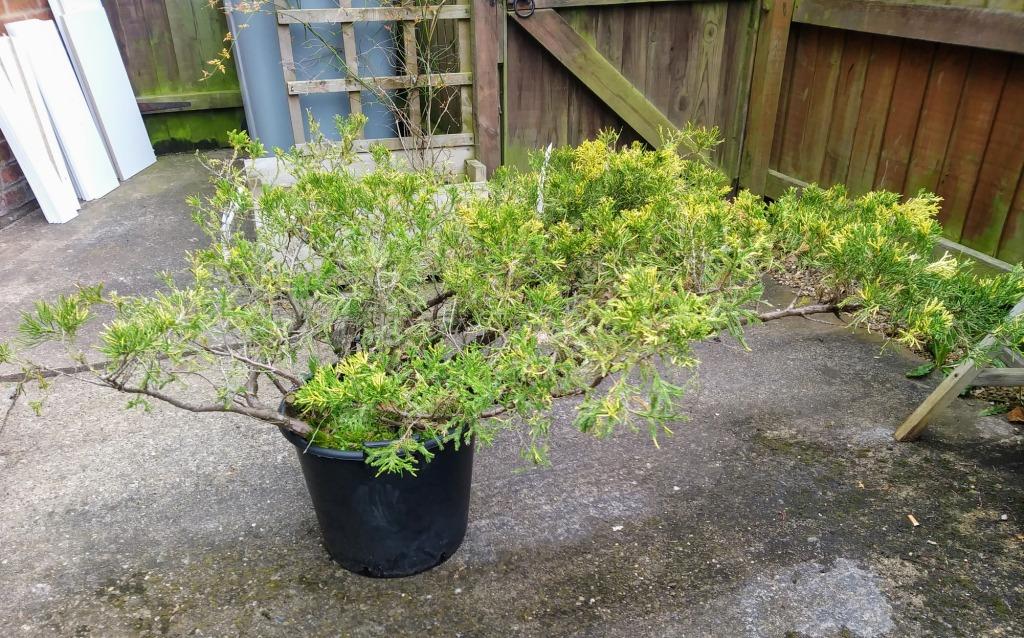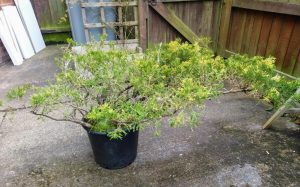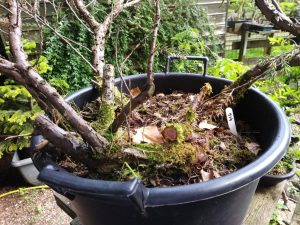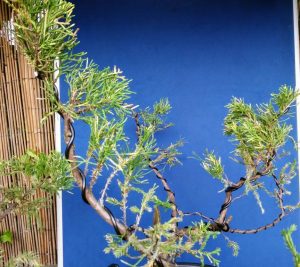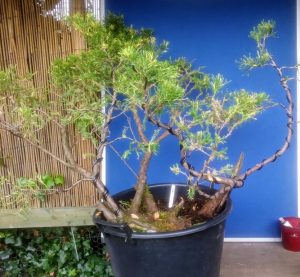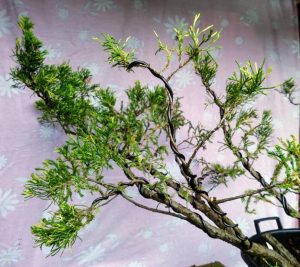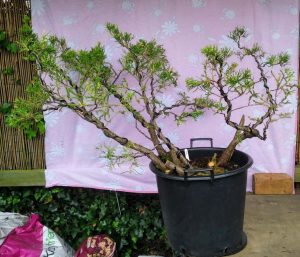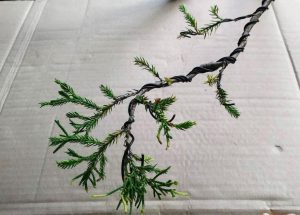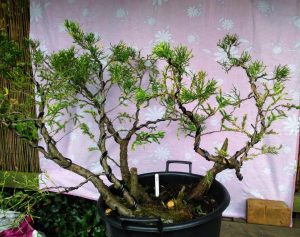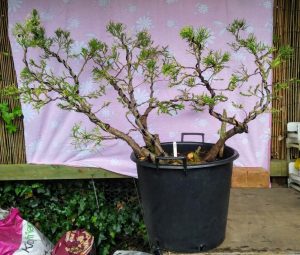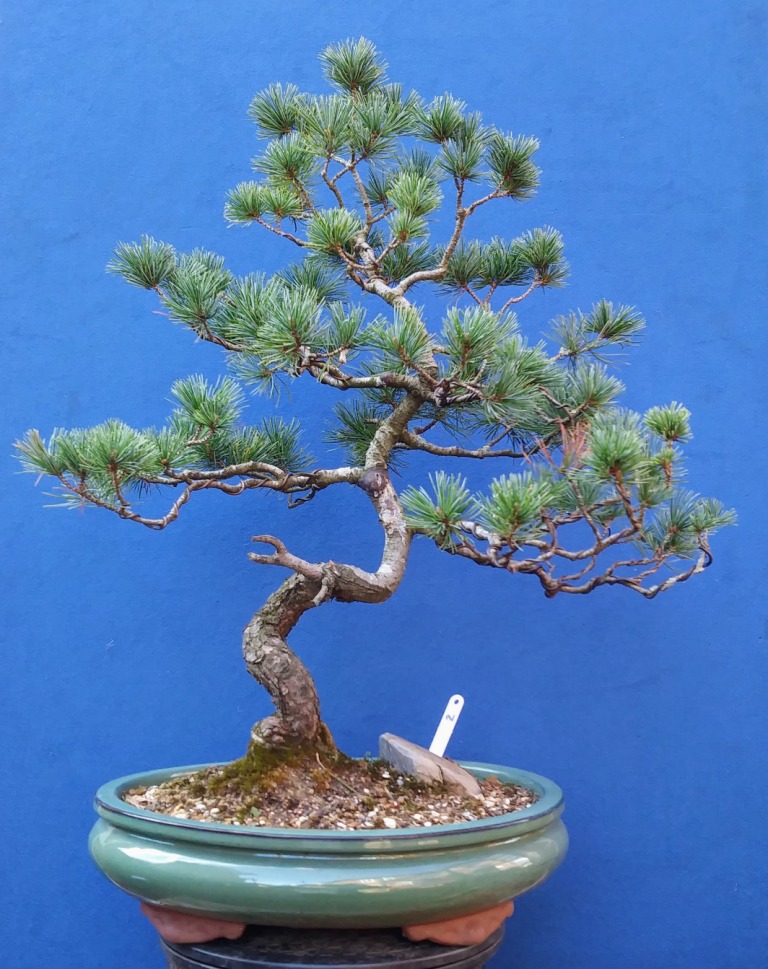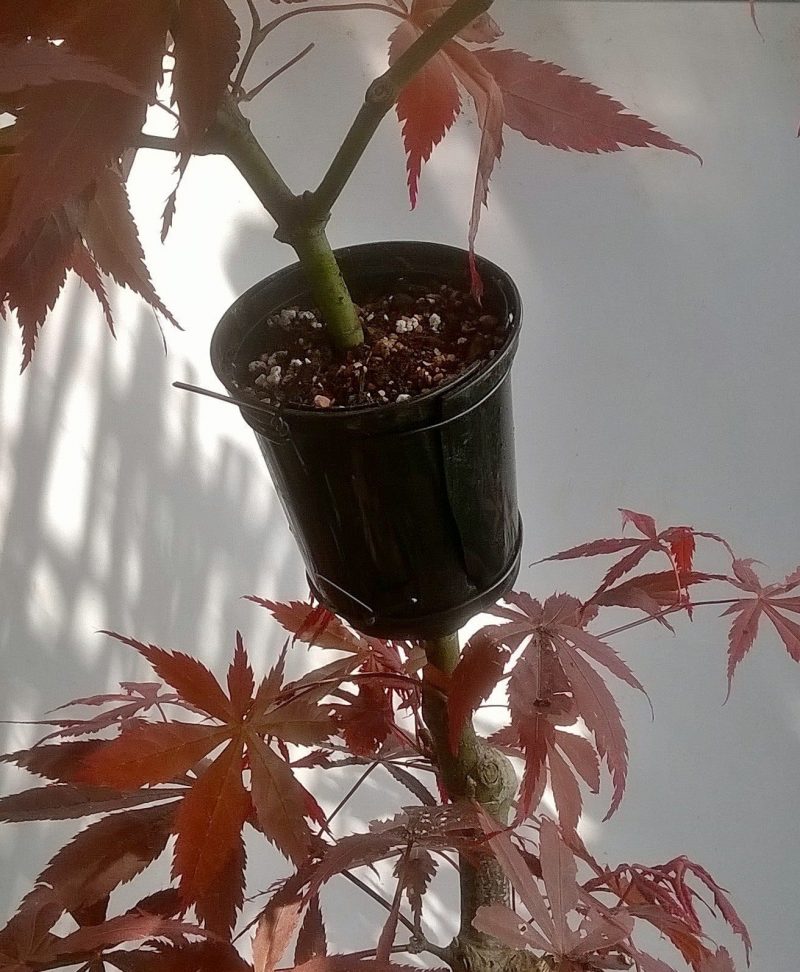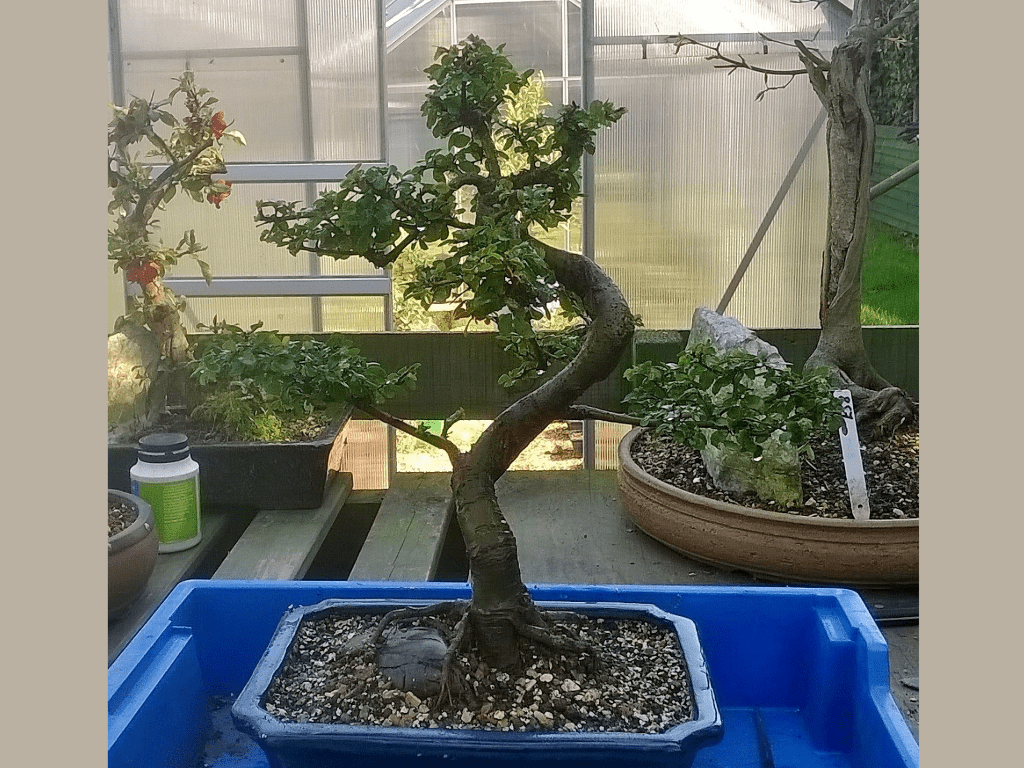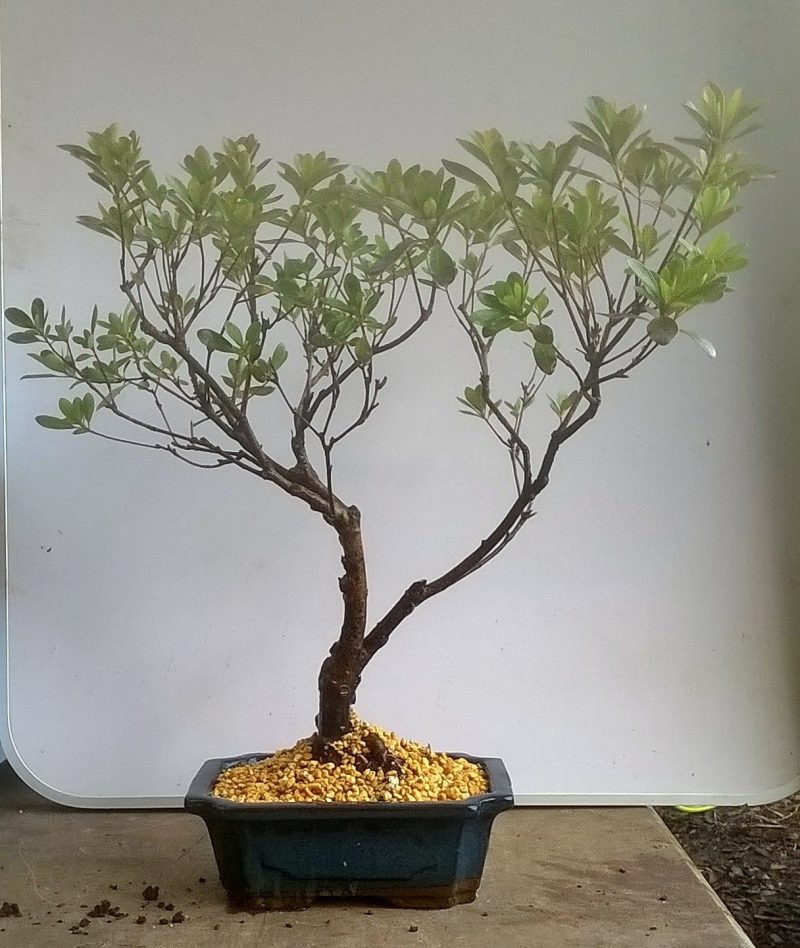Two or three times a year I pay a visit to my favourite stock supplier – Savin Nurseries. It is a massive garden centre hidden in the rural(ish) village of Lower Stondon and can cater for any of your vegetative delights. It is also well known amongst bonsai suppliers for a broad range of premium and budget trees. So this May I visited to find some low-cost starter trees such as Fuji Cherry, Yew or any other deciduous bargains hidden in the corners…
Little did I expect to settle on a four-foot monster Juniperous Davuricus – better known as Chinese Juniper. Most of you know already just how much I hate working with Junipers but I am still a sucker for challenges if they are at the right price. Twenty pounds later and a squashed ride back in my Kangoo found me wondering what on earth I was going to do with it???
It was too late to do an initial repot and as I had no idea how to style it with all of the multiple trunks I put it in the corner of the garden and ignored it. I have found over the years that it is always best to ‘leave a tree alone’ when you really have no idea what to do with it. Then out of the blue, just a few days ago, I started ‘fiddling’ with the trunks and clearing out the lower debris 🙂
Once I had cleared away all of the moss and dead twigs I could start to get an idea of which trunks I wanted to keep. At this stage I recognised that their was no obvious primary trunk or front so I started to look for anything that had promising secondary branch structure or would be easier to bend once wired.
I hate Juniper for two reasons. The first is that the juvenile growth is prickly and the second is that they generally require a lot of wire work. As my wiring skills have improved my desire to overcome this genus has grown stronger. Just be aware that you need different guages of wire and that the bark can be delicate.
Over the next two days I started to apply different guages of wire. I tended to work on a trunk by trunk basis and then ‘hopped between’ interesting branches as I felt the artistic creativity direct. With this sized project it is important to be prudent with how much of the foliage you decide to prune – it is far too easy to remove a branch that you later realise is pivotal to the final design.
This is an example of one of many of the branches that had to be wired and bends applied. There are two gauges of wire used in this example and it is crucial to be very careful with your application. The bark can come away very easily and that will lead to branch dieback in many cases. I learnt how to wire by practising on branches already removed. Bonsai Mirai do an excellent video class on this technique.
I am now at the stage where it is just the apical regions to sort out. As this is the first styling of a complicated clump I have left a lot more branches than the final design will require. All I am looking at now is to resolve any obvious flaws in the primary structure.
After about 5 hours work and £12 of different guage wire I am finished. This is the front that I have chosen for now and I may tilt the tree forwards when I do the repot next spring. The wire will be checked in about 9 months time though I expect it to remain in place for at least a year. Several of the cut trunks and branches will be turned into deadwood and shari later in the summer.
I am really happy how this has turned out and I am quietly optimistic for its future development. I am expecting some of the secondary branches to die as a result of clumsy wiring – but it happens! I ended up removing around 60% of the original foliage so I will keep it in a shady spot and give it time to recover. If all goes well I would hope to see new growth later in the year. I will dump a load of fertiliser on it once the summer is coming to an end.
So I hope this has peaked your interest in Juniper as a bonsai subject. They are easy to find and pretty cheap so all you need to invest in is the wire.
Happy bonsaing 🙂





